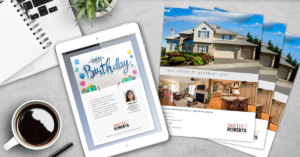Since the vast majority of prospective home buyers use online resources to find a home, your role in that process must transcend merely being a facilitator for showing properties. They simply don’t need you for that. What they do need is help and guidance through the entire process. And that means establishing a relationship with them where you become a trusted resource.
Real estate agents are only as good as their clients think they are. Rather unsettling, but true. If they don’t think highly, then you are essentially unemployed after every transaction. There’s no better way to ensure that they’re thinking good thoughts than to establish and maintain a solid, ongoing relationship with them. It can lead to great word-of-mouth and future referrals.
FOUR PILLARS OF GOOD RELATIONSHIPS
If your relationship skills are firing on all cylinders, you will have succeeded in all the following areas:
Awareness. You’ve created effective advertising. You are a player in community and charity activities. You are involved in the neighborhoods you represent. In other words, you’re out there and people know who you are and what you do. It’s hard work creating and maintaining a top-of-mind position in your area, but it’s imperative. You never know when someone is considering selling, so you want them to think of you by default.
Knowledge. Be a friendly resource for useful real estate information, guidance and expertise to those in your marketplace… even if you aren’t currently engaged in an actual transaction with them. Use your marketing tools to distribute information specific to your area such as sales trends, recent comps, etc. Become a conduit to reliable third-party services like staging and home improvement companies Be the go-to real estate expert.
Likeability. Be one of them. Be approachable. Engage in casual discussions where you talk about things outside of real estate. If they feel that you’re always pushing for their listing, it will likely be a turnoff. Above all else, be a good listener. People like to think what they may have to say is important. And it probably is.
Trust. If a prospect has gotten honest, helpful information and service from you, it builds confidence that they can trust you. And that leads to loyalty, which leads once again to referrals.
These four pillars make the difference between prospects just being aware of you and actually trusting you. Being aware of you leads to them knowing you… which leads to liking you… and ultimately trusting you.
DO YOU KNOW WHAT YOU KNOW?
Both homebuyers and homesellers want to work with an agent who is intimately engaged with the neighborhood. That takes a long-term commitment to developing consistent habits. It’s much more than just actively farming the area.
Stay informed. Know what’s going on in the areas you market. Set up an automatic search so you have the most recent information readily at hand. Visit, in person, every home for sale the day they go on the market. Include your findings in your promotional efforts. Know the schools and retail centers as well as emergency services such as fire, police and hospitals.
Know your numbers. Run a regular Comparative Market Analysis so you can be on top of property differences within your area. It’s a great way have a working knowledge of selling prices, how long homes are taking to sell and the many price points within your area.
Work where you live. While not always possible, this puts you at ground zero for what’s happening in your neighborhood and tells prospects that you understand the area much better than someone from the “outside.” If they know you just live down the street or around the corner, you become one of them and as a result you are far more approachable as the neighborhood expert.
Avoid the sales pitch. There’s no quicker way to turn off prospects than by leaning on them to get things started. It absolutely undermines your friendly area expert status and turns you into just another salesperson. If you push, you might be pushing them away. They need to feel confident that you are there to help and guide without pressure. Do that, and you stand a much better chance of getting the sale down the road.
Communicate in plain terms. Prospective buyers have all the data they need at their fingertips. It’s called Google. But how many really enjoy dissecting and understanding it all? Here’s your important relationship-building role: Be that resource that can interpret and add relevancy to that data in a way they can relate to. Clarify the information using plain language and highlight those facts that matter most.
TECHNOLOGY CAN BE YOUR BEST FRIEND
We’re surrounded by it. Smartphones, email and social media are all vying for our time and attention. Technology makes our lives easier, but it can also be overwhelming. The question is, where can technology and relationships come together in a way that improves how we do business?
It’s not the technology itself that makes or breaks relationships. It’s how one uses it.
Consider using an informative blog to post useful information to buyers, sellers and homeowners. Keep it local and relevant to your marketplace. Then tout your blog by publishing excerpts in a monthly email newsletter. Use social media to further your exposure.
How about sending a simple eCard wishing someone a happy birthday? Or offer a handy household tip. A recipe. You get the idea.
You’re using technology, but what you’re really doing is communicating things that your target market cares about. It’s been said that using technology to build and maintain relationships is vital. Using it to replace relationships, however, can be fatal.







